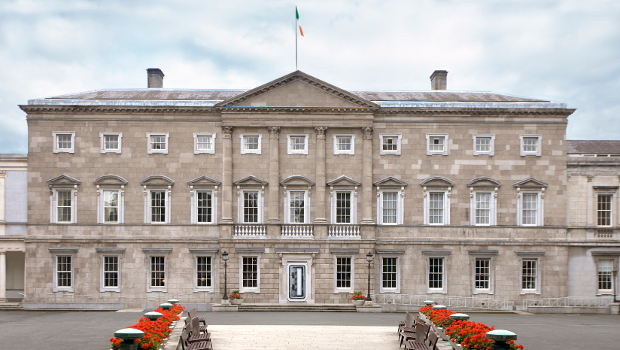Ireland’s first government CIO was Belfast man Bill McCluggage, appointed in 2013 after a distinguished modernising record in Northern Ireland public service and the British Cabinet Office. Unfortunately, in the view of most of the ICT industry and, anecdotally, the more forward looking state sector technology managers, he was compelled by illness in his family to resign after less than a year in the position. Speaking to TechPro, which also carried his first media interview as Government CIO, McCluggage was very clear that the role is one of turn around and change management.
Role and change
“The comparison with the private sector is often made. But it has to be recognised that commerce has one clear and universal yardstick for decision making — the impact on the profit and loss account. The public sector purpose is of universal service, to the state and the citizen, so the criteria are seldom as clear-cut. The Revenue Commissioners as an agency has a financial driver behind it as the cash flow engine of the state. Similarly to the commercial world, it can look at criteria such as return on investment and total cost of ownership. Other agencies may be able to use cost savings as a driver for ICT investment, but that is more likely to impact choices and priorities rather than total available budget.”
ICT leaders in the public sector may not be driven by profit, but they are both driven and constrained by budgets, he said. In our continuing austerity, the justification for ICT change and investment, and the choices to be made, are a constant challenge. “The best value for money out of cost-based — and highly constrained — resources is a complex equation at the best of times. So in strategic planning for ICT you have to understand those dynamics, which are essentially the same in all democratic societies.
Tech not the issue
Overall, McCluggage says, technology is important but it is not the issue. “You can do almost anything you want with technology today. The questions are about what you want to do and the management of change. The consumer or citizen is using lots of mobile technology and services today and they are all highly cloud-based. We are entering an ICT environment where the mobile worker like state field staff and inspectors of various kinds and so on, plus private citizens and even school children, are all in what the industry calls enterprise mobility. That is essentially enabled by the cloud. How it is delivered can be an important question, but in truth less so than what is delivered. The ‘why?’ centres around the fact that you do not know when the service is going to be required and you don’t want to pay for resource all the time. So you can allow surge or you can switch off. Cloud is like cooking by gas, I sometimes think — you only switch on and use rings as you require them. Cloud is a utility supply.”
Within government, McCluggage says, with a good network infrastructure foundation as Ireland has, the technology questions are simply about enterprise architecture and costs because services can be consumed through public or private or hybrid cloud. “Where you hold data will always be important. So you might hold sensitive data on secure private cloud. But that is inherently more expensive, so do you need it for travel and subsistence claims or dog licensing or whatever? Animal and veterinary records, for example, are not subject to personal data protection restrictions. The OPW and other state agencies own and manage a lot of property. Does all the facilities management that entails require special security?”

The actual services to citizens would probably come via cloud services — inevitably hybrid, it can be assumed — but the same data protection obligations apply regardless of the channels, which is what innovative systems will have to follow in the state sector, Barry O’Brien, IBM
“The state’s geospatial data is an interesting and very good example,” he said. “Stripped of any security information, the many valuable services based on that data can surely be cost-effectively delivered and shared with other parties through public cloud. This is an example of potential economic wealth for Ireland that can be shared for added value by citizens and private enterprise.”
Almost all of the eGovernment issues and problem sets are not about the technology, McCluggage believes. “They are about the individual organisations and cases and the enterprise architects and project leaders and essentially about risk. Public service managers are uncomfortable about taking risk, understandably and often rightly. Added to that is the recent history of negative economic drivers. In the private sector risk can be balanced against profit, so there is a measure against which to make judgements about innovation and change. There is no incentive for doing so for a public servant, except perhaps the philanthropic one of ‘doing good’. The same applies, very often, to the time scales in public sector projects because there is no opportunity cost judgement applied.”







Subscribers 0
Fans 0
Followers 0
Followers